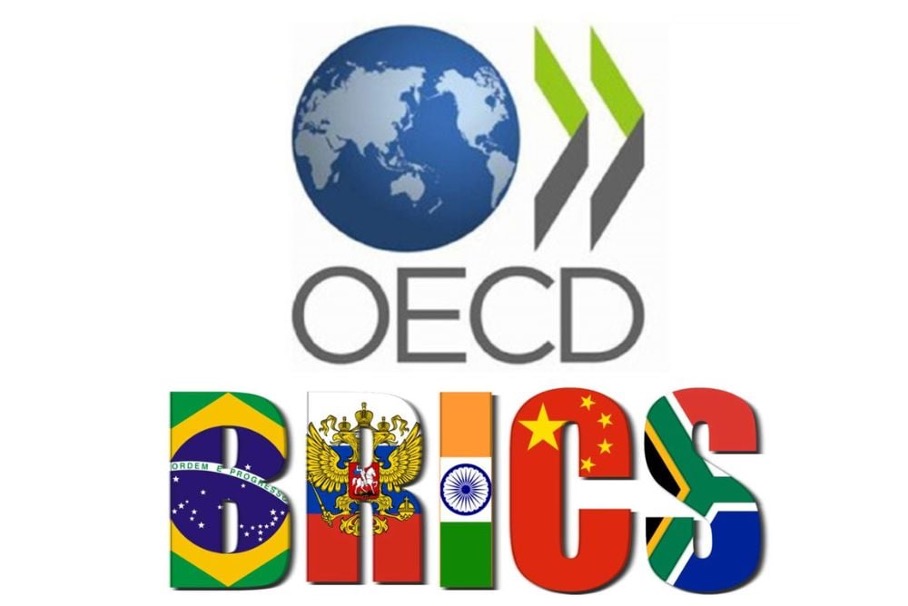Tổng số bài đăng 397.
In the context of globalization and the ever-changing world economic order, several ASEAN countries are considering expanding international relations and seeking development opportunities through joining major economic blocs like BRICS and the OECD. This interest reflects Southeast Asian countries' efforts to enhance their economic and political standing on the global stage.

BRICS: Fast-Growing Markets and Strategic Partnerships
BRICS was founded in 2006 by Brazil, Russia, India, and China (emerging economies with strong growth rates), with South Africa joining in 2011. Four other countries, including the UAE, Iran, and Saudi Arabia, joined in January, forming a group of ten nations. With the aim of creating an independent economic system and reducing dependence on the USD, BRICS has become increasingly attractive to ASEAN countries. Especially, BRICS holds the potential to promote trade, financial opportunities, and strategic partnerships through the New Development Bank (NDB) and other economic cooperation mechanisms.
With China and India as two major trade partners of ASEAN, joining BRICS could allow ASEAN countries to benefit from favorable economic policies, expanded export markets, and investment from BRICS countries. Additionally, close relations with BRICS could help ASEAN diversify economic ties, avoiding over-reliance on Western powers.
Participating in BRICS could bring benefits through enhanced financial cooperation, monetary stability, and significant investment opportunities. ASEAN countries would gain access to funding from the BRICS New Development Bank, a critical source for large-scale infrastructure projects. Cooperation with BRICS could also help ASEAN achieve sustainable development goals, poverty reduction, and green growth.
However, BRICS is a bloc with large economies that differ significantly in political and economic terms, which could make it challenging for ASEAN countries to balance interests and make appropriate decisions.
OECD: Developed Nations with High Standards
The OECD (Organization for Economic Co-operation and Development) is an international forum of 38 member countries aiming to promote sustainable economic development and improve financial and business policies. As the OECD mainly consists of developed countries, ASEAN nations may see it as a target to aspire to as they achieve high standards in economic management, governance, and institutional reform.
ASEAN countries, particularly Singapore, Thailand, Malaysia, and Indonesia, are making efforts to reform and modernize their economic systems. Joining the OECD would give them access to knowledge, management experience from developed nations, and opportunities to participate in public policy workshops and forums.
The OECD is a "seal of approval" for successful development and reform, providing opportunities to attract foreign investors and strengthen global market confidence. ASEAN countries would have the chance to learn from OECD member states in areas such as public administration, transparency, quality of life improvement, and sustainable development.
Membership in the OECD requires countries to meet stringent standards in governance, anti-corruption, institutional reform, and environmental protection. This necessitates significant adjustments to the economic management structure and legal systems of ASEAN countries, which may face obstacles due to differences in institutional structures and economic frameworks.
Factors Influencing ASEAN’s Decision
Some ASEAN countries’ desire to join BRICS or the OECD stems from a shared ambition to integrate more deeply into the global economy, diversify international relations, and avoid reliance on any one bloc. However, the choice between BRICS and OECD—or pursuing both—depends on specific factors:
(i) Ability to Adapt to International Standards: To become OECD members, ASEAN countries must meet high standards of economic and social governance, whereas BRICS does not impose such strict requirements, making it more accessible for developing countries.
(ii) Diversification and Risk Mitigation Strategy: For ASEAN countries, diversifying diplomatic and economic relations is essential to avoid being drawn into conflicts among major powers. Joining both blocs or at least strengthening ties with both BRICS and OECD could help them achieve this balance.
(iii) Sustainable Development Opportunities: Sustainable development goals, environmental protection, and improved living conditions are ASEAN’s top priorities. Therefore, which bloc to join will depend on which one can better support these objectives.
ASEAN countries face both opportunities and challenges in deciding whether to join BRICS, the OECD, or both. Joining these blocs could open up new opportunities, from enhanced investment and financial support to access to sustainable development policies. However, it also requires ASEAN countries to adapt and reform to meet the requirements and align with the unique dynamics of each bloc.
| In February 2024, Indonesia submitted an application to join the OECD, which began considering Indonesia’s application in May. Thailand applied to join the OECD in April. In June 2024, Thailand also expressed interest in joining BRICS. In July 2024, Malaysia has applied for BRICS Membership. |









